The Iraq Report: Iran outplays Saudi Arabia in influencing Baghdad's diplomacy
However, rather than going to Saudi Arabia first as originally announced, Kadhimi found himself in Tehran after Iran deftly outmanoeuvred the Saudis politically once again.
In a region with ever-increasing tensions, Iraq also has to deal with its rapidly declining water levels as Turkey continues to dam the Tigris and Euphrates rivers for its own hydroelectric production projects, which has left countries downstream, including Iraq, parched.
With water security set to be one of this century's conflict flashpoints as freshwater supplies dwindle around the world, Iraqi-Turkish relations could be shaped by the politics surrounding the two rivers that Iraq is famous for.
Iran outhustles Saudi on Iraq diplomacy
Iraqi Prime Minister Mustafa al-Kadhimi made his first visit to the Iranian capital Tehran on Tuesday, holding high level bilateral talks with Iranian President Hassan Rouhani and Supreme Leader Ayatollah Ali Khamenei.
 |
Rather than visiting Saudi Arabia as planned on his first trip abroad, Kadhimi found himself in Tehran after Iran deftly outmanoeuvred Riyadh |  |
In a press conference following talks with Khamenei, Kadhimi made it clear that he "won't allow any aggression or challenge to Iran from our territory", a statement that has been feted in the Iranian press as an affirmation of the close proximity Tehran enjoys with the authorities in Baghdad.
While the Iraqi prime minister's announcement is not unusual and not unprecedented given the history of his predecessors since the US-led invasion in 2003, what is interesting is how his visit represented yet another diplomatic win for Iran at the expense of both the United States and their main Arab ally, Saudi Arabia.
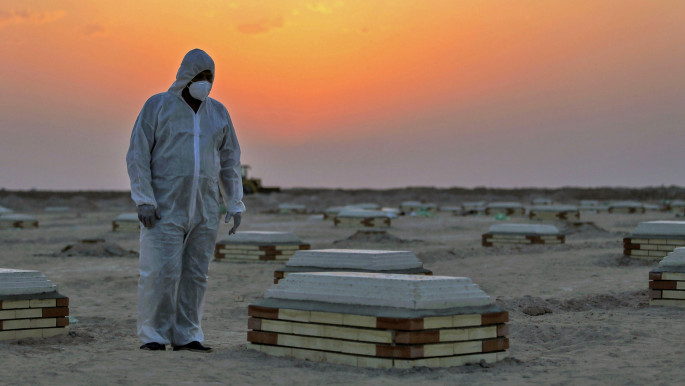 |
|
| The Iraq Report: Coronavirus worsens as Baghdad continues to grapple with lawless Iran-backed militias |
Kadhimi's visit comes two days after Iranian Foreign Minister Mohammed Javad Zarif was in Baghdad, and a day after Kadhimi was supposed to be in Saudi Arabia as part of the first leg of his inaugural foreign diplomatic tour as prime minister.
Preparations and a formal announcement were made weeks ago that indicated Kadhimi would first visit Riyadh before heading to Tehran, with the visit to Saudi Arabia being viewed as a snub to the Iranians who have been facing unprecedented resistance to their influence in Iraq since last year.
The Saudi Arabian media was busy trumpeting Kadhimi as a fresh start for relations between the two Arab countries, and highlighted how Iraq would soon be connected to the electricity grid of the Gulf Cooperation Council (GCC) of wealthy Gulf Arab states, a move seen as necessary to wean Iraq off its Iranian energy dependency.
Days before the trip was due to take place, the United States, alongside representatives of Iraq and the GCC, released a statement in support of the initiative and offering the US' aid in ensuring it reaches fruition.
However, the Iranians appear to have had other plans, and pulled the rug out from underneath both the US and Saudi Arabia. Tehran dispatched its top diplomat, Javad Zarif, to Baghdad last Sunday on the eve of the Iraqi premier's visit to Saudi, where he was received by a number of high-ranking officials, including prime minister Kadhimi.
 |
Kadhimi's Tehran visit represented yet another diplomatic win for Iran at the expense of both the US and its main Arab ally, Saudi Arabia |  |
Considering the history of undue and enormous Iranian influence over Iraqi politics, this was arguably a transparent attempt by Tehran to show the world that Kadhimi's upcoming Saudi visit would be to send a message to Riyadh rather than to engage in business between two sovereign powers.
It appears that message was well-received by the Saudis who promptly cancelled the summit due the following day, citing Saudi King Salman bin Abdulaziz's hospitalisation.
While King Salman's medical problems are certainly real, he was still able to chair cabinet meetings from hospital despite the concerns over his gallbladder.
Further, such high-level meetings are ordinarily the responsibility of Crown Prince Mohammed bin Salman, better known as MBS, who has played an increasingly dominant role in crafting Saudi domestic and foreign policy.
This leads to the suggestion that Saudi Arabia felt that the Iranians had undermined their diplomatic efforts and, rather than attempting to salvage their political capital, decided to drop the fledgling Kadhimi altogether, a development which is likely to irk Washington which acted as a facilitator.
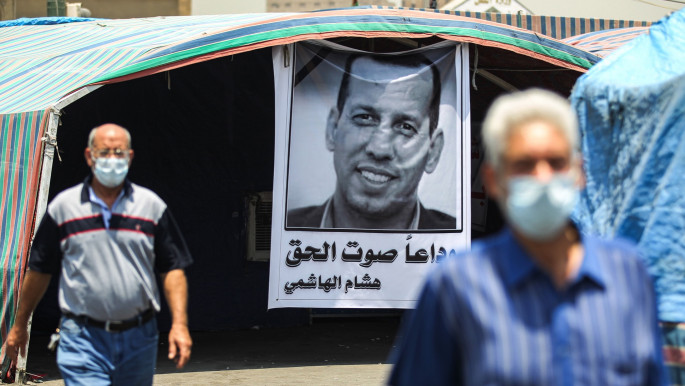 |
|
| The Iraq Report: Hisham al-Hashimi's killing sends a grim message to opponents of Shia militias |
Kadhimi is increasingly being viewed as a stop-gap politician who is unable to stand up to Iranian dominance of Iraqi politics. Aside from his failure to curb Shia militias over the past two months, there were more subtle cues such as a Shia Islamist Iraqi television station openly broadcasting an animated clip depicting pro-Iran groups forcing the US out of Iraq, including unsubtle images of coffins draped in American flags.
Given this diplomatic setback, and the fact that Kadhimi made unambiguous statements regarding his intentions from Tehran itself, it is unlikely the Saudi government will rearrange the meeting any time soon. This may therefore necessitate yet another intervention from the White House which in turn may be stalled due to the incoming American presidential elections due later this year.
Turkish dams threaten Iraqis with thirst
Iraq's water resources ministry warned last week that the country faced severe water shortages if agreements are not soon forged with Turkey over the decreasing flow of the Tigris and Euphrates rivers due to Ankara's expanding irrigation and hydroelectric dam projects.
Measurements of inflows from the border with Turkey in northern Iraq were 50 percent below average this year, Iraq's Water Resources Minister Mahdi Rashid Al-Hamdani said in an interview with the Associated Press last Thursday.
With the impact of climate change, as well as future hydroelectric projects in Turkey, the ministry estimates Iraq will face a shortage of 10.5 billion cubic meters of water by 2035, according to an internal study, al-Hamdani said.
 |
Kadhimi is increasingly being viewed as a stop-gap politician who is unable to stand up to Iranian dominance of Iraqi politics |  |
Ordinarily, the flow of the Tigris River is at around 600 cubic metres per second, yet this has almost been halved according to Iraqi water experts. "The water level of the Tigris River was around 600 cubic meters per second," Ramadan Hamza, water strategy expert at the University of Dohuk said. After Turkey built the so-called Ilisu Dam, "it dropped to around 300-320 [cubic metres per second]."
The Ilisu Dam on the Tigris, part of a megaproject by Turkish President Recep Tayyip Erdogan, is at the heart of the dispute. The dam, which became operational in May after three years of delay, is to be one of 22 power dams in southeastern Turkey.
A recent report by the UN's International Organization for Migration found that water levels of the Tigris and Euphrates are decreasing at an "unprecedented rate," that could result in the forced displacement of entire Iraqi communities.
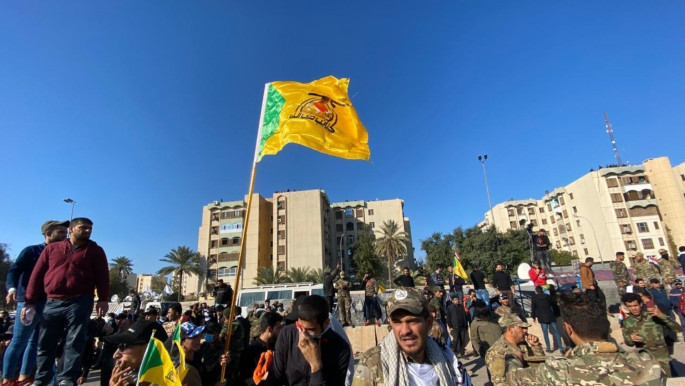 |
|
| The Iraq Report: Pro-Iran militias reassert dominance over Mustafa al-Kadhimi |
Iraq has been known as Bilad al-Rafidayn in Arabic, or the Land of the Two Rivers, since ancient times, showing how pivotal these two rivers have been to the various peoples who have inhabited the land once known as Mesopotamia, the cradle of civilisation.
However, due to decreasing water levels, many of Iraq's once lush plains have suffered from salination and desertification. Southern Iraq's marshlands are also becoming parched as well as polluted, threatening the lifestyle and culture of the Marsh Arabs who commonly farm water buffalo.
Over 80 percent of Iraq's water goes to agriculture which employs about a third of the Iraqi workforce. Water shortages, pollution and high levels of salinity lead to many Iraqis falling sick and prompted violent protests in the summer of 2018 across southern Iraq. Many of the issues caused by water pollution and shortages continue to be raised in the protest movement that has engulfed Iraqi politics since October last year.
If the Iraqi government fails to get a grip on its water resources then it could lead to an even greater flare up of domestic anger against the Baghdad regime. Iraq's reservoirs cannot sustain this level of water inflow reduction for long and, sooner or later, ordinary Iraqis will start to feel the shortage in their homes.
Similarly, Turkey could find itself facing a highly hostile Iraq, both in terms of government and people, if it does not relent and make itself seen to be fair with the flow of water downstream. Turkey has legitimate rights to develop its domestic energy supply, but it cannot come at the expense of Iraqis dying of thirst or water pollution downstream.
With the increase in conflict over ever-scarce water supplies – as in the case of the dispute between Egypt and Ethiopia and the water of the Nile – the damming of the Tigris may be a flashpoint for future conflict between these two neighbours in a region already beset with violence.
The Iraq Report is a fortnightly feature at The New Arab.
Click below to see the full archive.
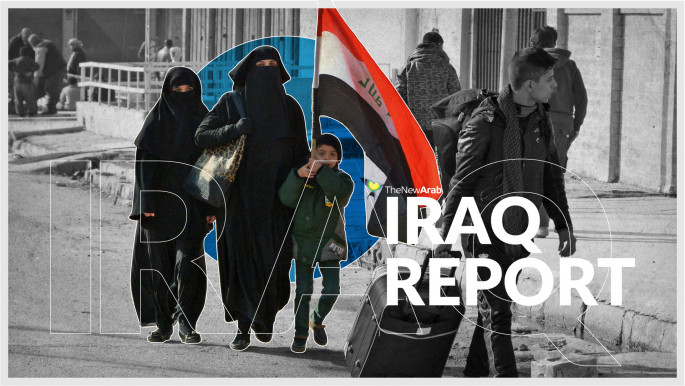 |
|
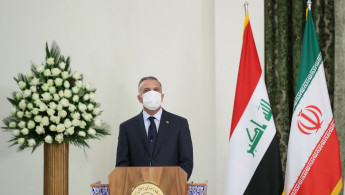

![Minnesota Tim Walz is working to court Muslim voters. [Getty]](/sites/default/files/styles/image_684x385/public/2169747529.jpeg?h=a5f2f23a&itok=b63Wif2V)






